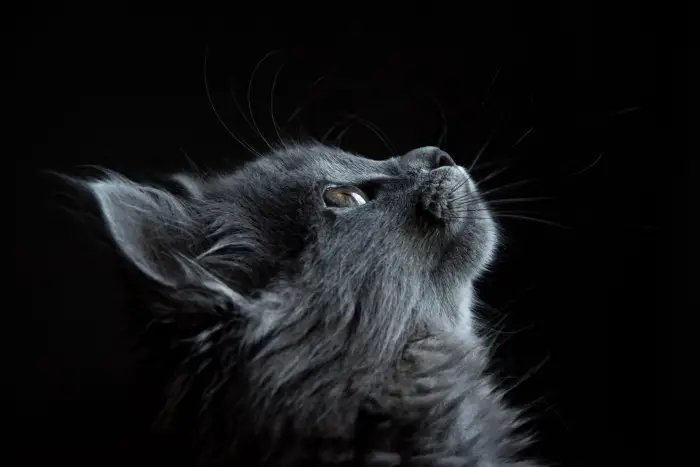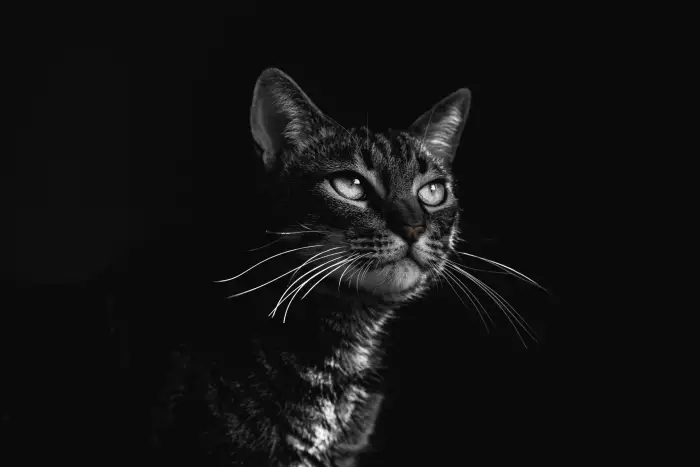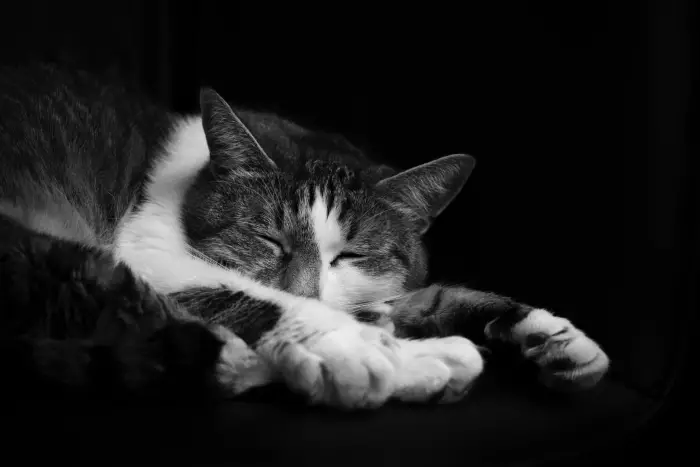Senile Cats: Why My Cat Is Acting Weird and What to Do – 14 Pics
Has your senile cat been acting strangely of late? Has it been withdrawn or eating less? The chances are that your cat might be having dementia. Cats also age, just like us. Read on for more info on dementia signs plus what to do.
Cat Health – Definition of Feline Senile Dementia
Also known as Cognitive Dysfunction System, senile cat dementia is a cat mental health disorder that affects old cats. It’s connected with brain aging and can lead to cat behavior problems such as anxiety plus a worsening of the cat’s awareness, the capability to learn, and hearing perception. This disorder leads to alterations in levels of activity, confusion, plus changes in sleeping patterns. These issues can make a feline feel agitated and more stressed. Senile dementia in felines can cause a feline to forget ordinary, natural activities such as eating.
What Brings About this Disorder?
Senile dementia in cats is similar to dementia in human beings. Changes such as a reduction in blood flow to the brain can make brain cells damaged, tired, and also make it hard to maintain healthy brain function. It, in turn, leads to dementia in a senile cat. Additionally, genetics can lead to feline senile dementia.
The Age When Feline Senile Dementia Kicks in
The mental abilities of your feline might begin to deteriorate when it reaches 11 to 12 years of age. As your feline ages and reaches 15 years old, there’s a possibility they’ll develop dementia. However, it doesn’t imply that felines below 15 years of age can’t be affected by this disorder.
Signs a Cat is Suffering from Feline Senile Dementia
1. Alterations in Social Conduct
It is a clear symptom of feline senile dementia. Your feline might not fancy any petting or cuddling. They might likewise not be interested in interacting with people or other pets around. In other words, they tend to hide (one of the signs a cat is dying of old age). Moreover, some felines with dementia become clingier.
2. Spatial Disorientation
Disorientation is one of the initial signs that become evident when your senile cat’s cognitive skills begin to decline. Instances such as when your feline aimlessly wanders around the house or gets lost when in recognizable areas may indicate disorientation. Another example maybe your feline being fixated on something for a more extended period.
Furthermore, felines affected by this cat health care problem might encounter difficulties when walking or jumping on and off tables or beds. They may also find it difficult to do simple things which they always do. Your feline might not respond to sound when they hear it, or when called. It might not respond at all.
3. Excess, Odd Vocalizations
Felines have different talkativeness levels. Some can be very talkative plus constantly vocalize. Whereas others simply remain quiet or meow and just watch observantly. Whether your cat is talkative or likes to remain quiet if it’s vocalizing strangely, and more excessively than before, find out what’s wrong.
A senile cat suffering from dementia tends to vocalize strangely, particularly at night, overly. Mostly this occurs because your cat is experiencing pain due to a condition such as arthritis or injury. If it is vocalizing strangely and doesn’t have any medical issue, the chances are that it’s suffering from dementia symptoms such as anxiety plus disorientation.
4. The decline in Memory and the Ability to Learn
A senile cat with dementia tends to experience a slow decline in memory plus learning capability. They’ll never again recall how they ordinarily do things such as utilizing litter boxes. Additionally, they tend to forget the abilities that they’ve learned and also fail to recognize familiar faces.
5. Reduction in Appetite
Mental dysfunction can make your feline neglect to feed. Even though appetite loss might be an indication of something else, you should see a vet if you encounter this. Issues such as environmental changes or stress can lead to your cat not feeding well and, eventually, your old cat losing weight.
Additionally, cats can decline to eat or drink anything for a day. Loss of appetite is also another indication of an old cat dying behavior. Nonetheless, if this persists for more than a day, you ought to take your feline to a vet for a checkup immediately. If the cat stays without feeding for a long time, it will end up becoming malnourished plus dehydrated. You’ll be left with questions such as ‘skinny old cat what to feed?’
6. Declined Activity Level
When your cat has feline senile dementia, their activity levels will significantly drop. They might take part in physical activities less often than before. Moreover, the response to things around them will also reduce.
7. Increased Anxiety and Irritability
Cats suffering from dementia become stressed out even under ordinary conditions. It causes them to become irritated. They become more anxious, thus becoming more restless.
8. Changes in Appearance
Cats like to spend time grooming and cleaning themselves. They don’t want to be untidy. However, when suddenly your feline doesn’t observe neatness or doesn’t groom itself, then there might be a medical issue. Neglecting to maintain neatness might be a result of your senile cat suffering from dementia. Furthermore, you might notice your old cat losing hair.

Things to Do When Your Feline Exhibits Signs of Being Senile
Manifestations of FCD frequently go unnoticed. In case your feline is presently experiencing such changes, don’t hesitate to consult a vet. You’ll want to know plus comprehend what your feline is experiencing to manage these changes. Managing these changes which your feline is experiencing might likewise stress you. Be patient and sympathetic, and abstain. Don’t punish your feline for behaving oddly to steer clear of worsening the situation. Also, don’t make any changes in your cat’s surroundings to reduce confusion. Give it food and water for it to remain healthy.

Conclusion
If you see your cat behaving strangely and you can’t figure out what the issues are, consult a vet as soon as possible. Inform the vet about all the changes your cat has exhibited. Ensure you don’t leave anything out. You must comprehend these changes that come with an aging cat and try to work with the vet to deal with them.
What other signs of senile dementia in cats are you aware of?

Author: J-La
Author’s biography: The writer is a veterinarian. J-La graduated in 2002 with a Bachelor of Science degree in Veterinary Medicine and Surgery. He loves animals and is passionate about everything concerning animals. J-La regularly writes about various medical issues regarding animals and knows how to care for selling cats or best cat urine remover. He has a dog named Drogo and a cat called Cleo.
All photos are from our FB page Animal’s Look, except the last three:
pexels.com/photo/photo-of-gray-cat-looking-up-against-black-background-730896/
pexels.com/photo/selective-focus-photography-of-black-tabby-cat-1930852/
pexels.com/photo/grayscale-photo-of-sleeping-tabby-cat-2124869/
